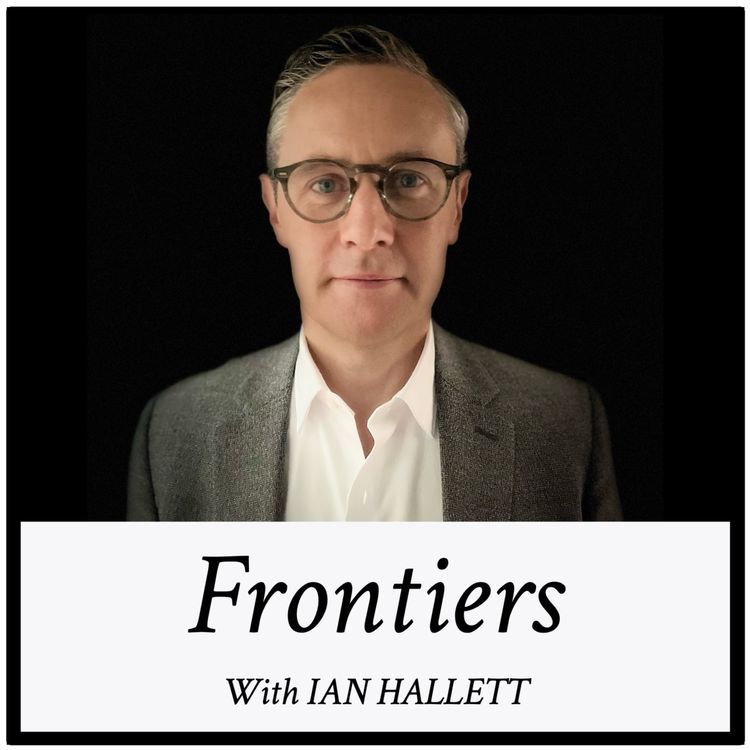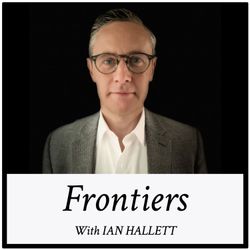Share

Frontiers
#10. Professor Thorsten Wuest: What You Need to Know About Smart Manufacturing and Industry 4.0
Professor Thorsten Wuest is a leading expert on Smart Manufacturing, Industry 4.0, and Digital Supply Networks and a Professor of Smart Manufacturing at West Virginia University. His research focuses on Smart Manufacturing, Artificial Intelligence, Industry 4.0, Servitization, and Digital Supply Networks. He is globally recognised as one of the 20 most influential professors in smart manufacturing whose work has been featured by Forbes, IndustryWeek, and the World Economic Forum, in addition to the premier academic outlets in his field.
Key Moments:
01:25 Smart Manufacturing and Industry 4.0
13:48 Role of Artificial Intelligence in Smart Manufacturing
28:37 Digital Supply Networks
45:43 Servitization
54:47 Importance of Data and Objectives
Music credit: David Cutter Music / @dcuttermusic
More episodes
View all episodes

50. #50. Final Episode: My Leadership Journey with Frontiers Host Ian Hallett
40:49||Ep. 50Ian Hallett hosts the Frontiers podcast, is a Group Managing Director at global flexible workspace provider IWG plc and is completing a PhD at the business school and grande école ESCP in Paris.This is the final episode of Frontiers, and I felt it appropriate to share an interview I did for the Show Up! podcast, in which I shared my leadership journey.It's been a privilege to speak with the amazing guests I've had on Frontiers. My heartfelt thanks to all of them and to you, the regular listeners.I am now focusing on my new project, Leaders of the People, which aims to democratise leadership education. Perhaps one day, I will relaunch Frontiers as part of this, but for now, it's been an amazing experience. Thanks again.
49. #49. UK's Nuclear Fusion Chair: This Technology Could Provide Limitless Clean Energy! It's A First-Of-A-Kind Programme. UK Is The World Leader. - David Gann
47:29||Ep. 49David Gann CBE is Chair of UK Industrial Fusion Solutions and Emeritus Professor of Innovation and Entrepreneurship at Saïd Business School, University of Oxford and Imperial College London. Professor Gann is a globally recognised leader in innovation, technology management and entrepreneurship.In our second conversation, David Gann and I discussed his efforts to lead the UK's Nuclear Fusion programme, a first-of-a-kind project (worldwide) that could provide limitless, clean, cheap energy. Music credit: David Cutter Music / @dcuttermusic
48. #48. [Highlight] How To Adopt AI Into Your Business (When You Don't Know Where To Start. - Prof. Stefano Puntoni
14:12||Ep. 48Stefano Puntoni is the Sebastian S. Kresge Professor of Marketing at the Wharton School. Check out episode 24 for the full conversation.Music credit: David Cutter Music / @dcuttermusic
47. #47. Data Sciences Professor: We Can Predict Your Personality Using Your Social Media Data! Your Phone is NOT Listening To You! You Can't Control Your Personal Data! - Prof. David Stillwell
58:17||Ep. 47David Stillwell is Professor of Computational Social Science at Judge Business School, University of Cambridge. Prof. Stillwell’s research uses big data to understand psychology.Music credit: David Cutter Music / @dcuttermusic
46. #46. [Highlight] What Will Your Job Be in 10 Years? - Prof. Sir Geoff Mulgan
20:22||Ep. 46Sir Geoff Mulgan CBE is Professor of Collective Intelligence, Public Policy and Social Innovation at University College London (UCL). Music credit: David Cutter Music / @dcuttermusic
45. #45. Strategic Change Professor: Your Words Determine Strategy! Change Your Narrative, Change Your Business! - Prof. Eero Vaara
54:39||Ep. 45Eero Vaara is Professor in Organisations and Impact at Saïd Business School, University of Oxford. Eero’s research focuses on strategic and institutional change. He is a world leading expert in discursive and narrative perspectives.Music credit: David Cutter Music / @dcuttermusic
44. #44. [Highlight] What Comes After TikTok? - Prof. Michael Haenlein
15:43||Ep. 44Michael Haenlein is a Professor of Marketing at ESCP Business School, and holds Visiting Positions at Kozminski University in Warsaw (Poland) and Trinity Business School in Dublin, Ireland. Music credit: David Cutter Music / @dcuttermusic
43. #43. Digital Agency CEO: Step Back, Understand The Problem, And Stay Calm! Finding Talent Is My Superpower! - Luke Smith
49:56||Ep. 43Luke Smith is the Founder and CEO of Croud, a leading independent digital agency. Croud has become a full-service global business, delivering innovative marketing solutions to top brands like Amazon Prime Video, Nespresso, and Ford.Music credit: David Cutter Music / @dcuttermusic
42. #42. [Highlight] How Investors Respond To A Crisis- Prof. Alex Wagner
20:20||Ep. 42Alex Wagner is a Professor of Finance at the University of Zurich (UZH) and a senior chair of the Swiss Finance Institute (SFI). He is the Chairman of the Executive Education of the UZH Faculty of Business, Economics, and Informatics and Co-Head of the UZH Center for Crisis Competence. He has served as chairman of a proxy advisor and as an independent counsel for PwC. His research focuses on corporate finance, sustainable finance, and behavioural economics.Check out episode 12 for the full conversation.Music credit: David Cutter Music / @dcuttermusic